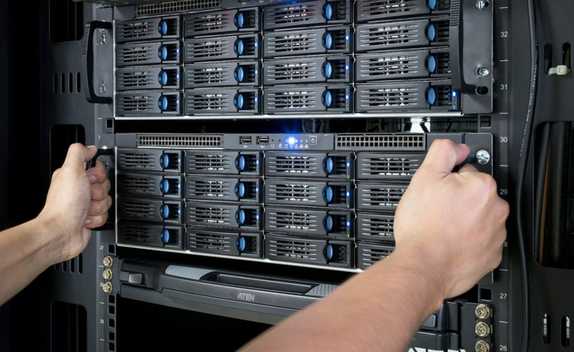Enterprise storage is a collection of products and services designed to allow a business to store and retrieve large volumes of information. In addition to the inherent capability to handle large volumes of data, enterprise storage solutions are also designed to support many concurrent users.
Enterprise Storage Types: Know Your Options
There are five types of enterprise storage solutions or technologies as follows.
#1. Direct-Attached Storage (DAS)
Direct attached storage (DAS) is a storage format where data is accessed by connecting an external drive directly to a computer. SSDs and HDDs are good examples of DAS.
The biggest pro for DAS is the high bandwidth and access speed. DAS provides a quick way for users to access computer storage. It’s a great candidate for hosting operating systems. It is also often the cheapest storage solution, especially where there is no likelihood of increasing your enterprise’s storage requirements.
On the other hand, storage space can be quite limited. DAS is not easily scalable as you can only connect as many drives as the number of ports on your computer. Additionally, DAS is not flexible. This is because you can only access the data on your hard drive on the computer into which the drive is plugged. This is unlike network-based storage, where you can access the data from multiple locations.
#2. Network-Attached Storage (NAS)
This enterprise storage network describes a storage system where the files stored in one device are made available to other users across various locations as long as these users can access the network.
The initial deployment costs for NAS can be quite high, but in the long run, it’s cheaper than cloud storage. Apart from the initial cost, you will not make regular monthly payments.
NAS features a Random Array of Independent Disks (RAID.) RAID allows for block-level replication, snapshots, cloning, and other features. These features make it possible to have failover arrays in a remote or local location in case of disk failure, which is a great plus for disaster recovery plans. The features are also great for an enterprise that requires on-premise backup.
NAS allows users to create access control. This way, you can easily manage which employees can access what files, improving your enterprise data security.
#3. Storage Area Network (SAN)
SANs describe high-speed data storage networks comprising specified devices, which may be in multiple locations. Fibre channel technology is the most commonly used protocol in SANs. This technology ensures that there are no dropping packets, even with a stretched bandwidth.
SANs are highly scalable, and you can add many devices and servers to the network. This storage is especially popular for enterprises with databases and other essential applications requiring a fast connection to the applications.
#4. Software-Defined Storage (SDS)
The premise of a software-defined storage network is that data storage management is through software rather than hardware. While the software does, of course, run on hardware, it’s not hardware-bound and runs on various hardware.
The hardware flexibility makes SDS less susceptible to being locked in by vendors. It is also highly versatile as an enterprise will have multiple storage options, not to mention that it can run in different environments.
#5. Cloud Storage
This enterprise storage type is such that there are multiple copies of the data in multiple locations. Data is backed up even in the event of a hardware failure or power outage. Compared to on-premise storage, cloud storage is highly scalable. With cloud storage, enterprises have three options for the cloud environment: private, public, and hybrid cloud.
Final Thoughts
It’s crucial to choose the right type of storage for your enterprise. After all, your choice will determine how much data you can store, the speed of access, and its security.






